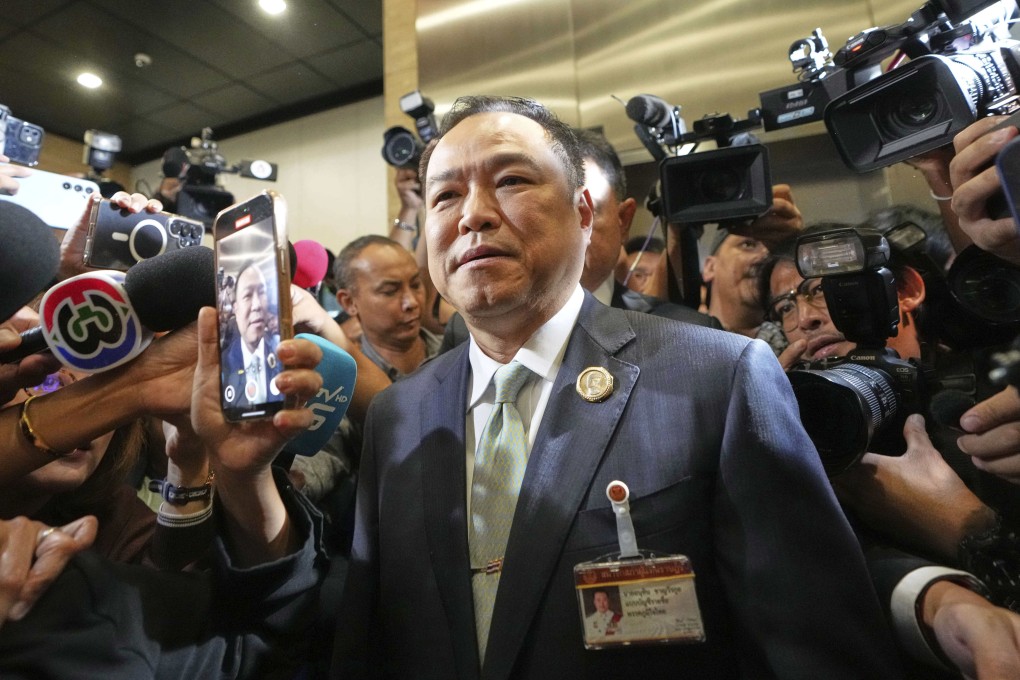Thailand's Acting PM Moves to Dissolve Parliament
Thailand's acting Prime Minister Phumtham Wechayachai has submitted a decree to dissolve parliament following a political deadlock and opposition maneuvering, paving the way for early general elections.

Thailand is once again engulfed in political turmoil after acting Prime Minister Phumtham Wechayachai announced his caretaker government has moved to dissolve the lower house of parliament, a dramatic step that could trigger early general elections. The announcement came directly after the country’s largest opposition bloc, the People’s Party, declared support for rival candidate Anutin Charnvirakul, intensifying the political standoff that has followed the ousting of Prime Minister Paetongtarn Shinawatra by the Constitutional Court over ethics violations.
A Power Vacuum and Political Maneuvering
The immediate catalyst for the dissolution was the Constitutional Court’s ruling last week, which removed Paetongtarn Shinawatra from office, leaving the ruling Pheu Thai Party in a caretaker role and scrambling to build a new coalition. The party’s efforts faltered as the People’s Party, holding the largest bloc of seats but no prime ministerial candidate of its own, shifted its support to Anutin Charnvirakul of the Bhumjaithai Party. This surprise move left Pheu Thai with little choice but to seek a reset through dissolution, as the opposition demanded fresh elections within four months as a condition for their support of Anutin.
Phumtham, in a statement marked as official, emphasized the need to restore political stability and economic confidence, saying, “With all of these problems, our lawmakers think we should return power to the people and let the people decide.” The caretaker government submitted the dissolution decree to King Maha Vajiralongkorn, whose approval is constitutionally required for the process to advance. If approved, elections must be held within 45 to 60 days.
Constitutional Crisis and Economic Fallout
Legal experts and the government’s own Council of State have raised concerns that a caretaker prime minister may not have the authority to dissolve parliament except in the case of a deadlocked prime ministerial vote, raising the specter of a constitutional crisis. The move has also deepened uncertainty in Thailand’s already fragile political landscape, with fears that the dissolution could exacerbate the country’s economic woes if confidence is not quickly restored.
The dissolution marks the 15th such event in modern Thai history, underscoring a recurring pattern of political resets in the face of instability. Previous dissolutions have been triggered by everything from coalition breakdowns to mass protests and constitutional crises, highlighting the persistent volatility of Thai parliamentary politics.
Meanwhile, the People’s Party has set strict conditions for its support of Anutin, including a commitment to constitutional reform and fresh elections. The party, which evolved from the progressive Move Forward Party, has campaigned to reduce military influence and reform the monarchy’s role, making its support highly contingent and the path to a stable government uncertain.
What Comes Next?
With the parliamentary calendar in flux and the possibility of a minority government looming, all eyes are now on the king’s decision and the timing of the next election. The political ground is shifting rapidly, and the outcome will determine not only the next government but potentially the trajectory of constitutional reform and the balance of power among Thailand’s rival camps. As has often been the case in Thai politics, the dissolution of parliament is both an end and a beginning—setting the stage for another contentious and closely watched general election.
Sources
-
Xinhua 1st LD Writethru: Acting Thai PM seeks to dissolve...
-
The Nation Thailand A History of Parliamentary Dissolution - Politics
-
Times of India Power vacuum in Thailand: Acting PM moves to disso...
-
Thai Examiner Thailand falls deeper into the abyss of deep polit...
-
ABC News Thailand's ruling party seeks new election as a wa...